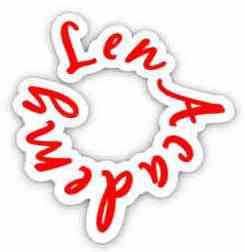 Len Academy
Len Academy
Key Points in Academics
Planets can be categorized based on their composition. These include:
1. Terrestrial or Rocky Planets: They are mercury, venus, earth and mars. They are called terrestrial or rocky planets for the following reasons:
They have a rocky and compact surface.
They have no rings around them.
They have a few natural satellites.
They rotate slowly around their axis.
2. Gas or Jovian Planets: They include jupiter, saturn, uranus and neptune. They have the following features:
They are called jovian planets because they are bigger in size when compared to earth.
They are composed mainly of hydrogen and helium gas, hence the name 'gas planets' or 'gas giants'.
They rotate rapidly.
They have many satellites.
They have rings around them.
Please read more on the classification of planets here.
Geography

The following rules are required for a body to become classified (or regarded) as a planet:
It must orbit the sun.
It does not orbit another planet. This means that it must not be a satellite.
It must have sufficient mass which accounts for its self-gravity.
It must assume a nearly round shape.
Please read on the planets of the solar system here.
Geography
Total Topics (561) Paged
Page (1 of 19)
Questions for Student
The _____ functions to remove excess heat from the refrigerator.
A. Evaporator
B. Compressor
C. Condenser
D. Expansion Valve
E. Thermostat
F. Defrost System
Basic Technology
A fluid or gas that runs through the compartments of a refrigerator is termed _____.
A. Water vapor
B. Liquid vapor
C. Frost
D. Refrigerant
E. Compressed water
F. Evaporated water
Basic Technology
Which of the following is not a branch of environmental geography?
A. Physical Geography
B. Hazards
C. Political Ecology
D. Environmental Perception
E. Landscape Studies
F. Energy and Resource Geography
Geography